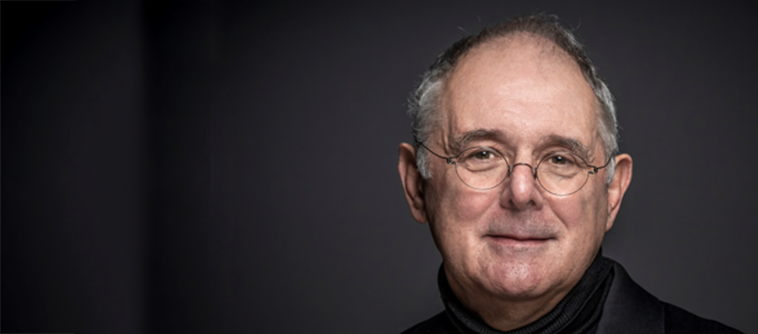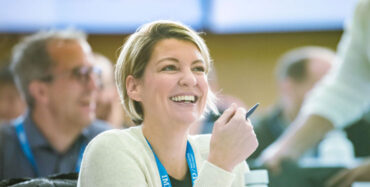
By all accounts, aged 47, Fred Sanders had a very successful life. Married with three children, he had trained as a civil engineer, completed an MBA, was director of a fast-growing housing corporation, and, as an avid mountaineer, enjoyed conquering Europe’s summits in his spare time. Yet he couldn’t escape the nagging feeling of ‘Is this it?’
“It wasn’t a mid-life crisis; personally, and professionally, everything was going so well. But I thought there should be more,” he recalls. “It’s only when you start running out of time, that you ask yourself: ‘Is this for me? How do I make more personal choices?’”
In 2003, he signed up for IMD’s High Performance Leadership (HPL) program with the aim of uncovering how to better lead his team that had grown from 20 to 80 people and more than doubled its revenue within just a few years.
“I was looking to become a better manager, and learned how to become a better man, with a more equal balance between work and family and a clearer target to work more on societal goals than just my own ambitions,” he says, praising IMD Professor George Kohlrieser, a former hostage negotiator, who directs the program.
A standout moment was the fourth day of the program, when participants were paired up and asked to spend some time drawing up a lifeline from the past and then again for the next 10-20 years. Sanders’ partner, a woman called Anja from Germany, helped him break away from the path he had chartered.
“I realized that I spent too little time at home. I also had a habit of venting to my partner so that she thought my work was only negative,” he says.
“I changed that attitude to the family and started thinking how I could be more helpful to society.”
Over the next three years, Sanders spoke to many people about his personal ambitions and goals and started writing a leadership column for a real estate magazine. Then, out of the blue, he got a call from the University of Delft Urbanism department asking him if he would like to do a doctorate on climate change and human behavior, something he had never previously considered.
Sanders went on to complete his PhD while working part-time. This launched his second career as a lecturer, research scientist, and local politician. “HPL made me reborn; it made me vital,” he laughs. The only downside is that now, aged 67, most people are expecting him to retire, while as a young doctor, he feels he has just started.
Yet Sanders has no plans to stop. He is currently captain of the Dutch team of the EU’s Horizon 2020 SOS Climate Waterfront project, which is looking at how coastal cities can successfully prepare for and adapt to climate change. He has also added a further string to his bow, that of a published author. His first novel The Dead Man in the Moor follows four schoolchildren who set out to uncover the mystery of the dead man’s life, with climate change as a theme overseeing the action.
As a Dutch citizen, Sanders is realistic about the impact of climate change on his homeland. “Even with the mid-range scenario, the western part of the Netherlands won’t be inhabited 150 years from now if we don’t take action. Adaptation will be the answer,” he says. Yet he remains sanguine about the ability of individuals to adapt to climate change, as long as they learn to break the problem down.
“With climate change, many people try to make the problem bigger to give it urgency. This puts people off. It’s important to make a great problem like climate change smaller and touchable by people personally,” he says. “For example, we can focus on our own habitat. People can do so much to make a city greener and more livable; they can use rainwater for their gardens, they can plant trees in gardens and their streets, and combine their initiatives with others. When everyone does it, it has an impact.”
The HPL program gave Sanders the courage to alter the trajectory of his life. He encourages others to view change not as something to fear, but something to embrace. “A happy life on earth is rather dull. A life that has unexpected change, where you dare to step from one mountain to the other, is more exciting,” he says.
“HPL taught me that that life is a gift that you can broaden to multiple goals. How dull it is to do the same thing over the years and be blind to influences. Making a zig-zag career is much more challenging. It’s not bad to take a step back now and again, or to take a little bit of time to think. Just as with climate change, you will see more of the opportunities than the threats.”


